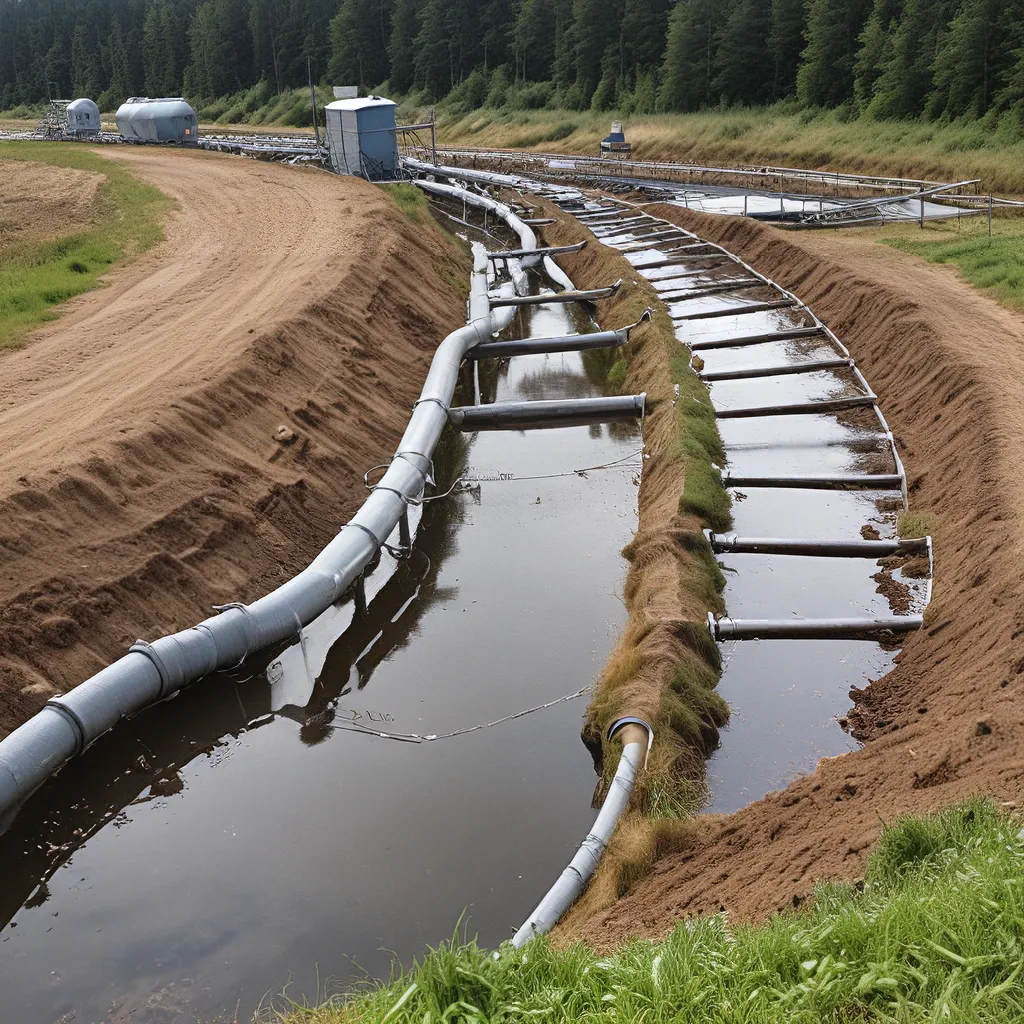
As an environmental enthusiast, I’ve always been fascinated by the innovative ways we can transform waste into valuable resources. And when it comes to wastewater treatment, the possibilities for bioconversion are truly remarkable.
You see, I recently learned about this incredible process called anaerobic digestion, where microorganisms break down organic matter in the absence of oxygen. It’s like nature’s own recycling program, where we can take things that would otherwise end up in a landfill or polluting our waterways, and turn them into biofuels, fertilizers, and even high-value chemicals.
Now, I know what you’re thinking – “Wastewater treatment? Sounds like a pretty dry and technical topic.” But trust me, once you dive into the world of wastewater valorization, it’s anything but boring. In fact, it’s a thriving field of research and innovation, with scientists and engineers working tirelessly to find new and better ways to transform our waste streams into valuable products.
The Evolution of Wastewater Treatment: From Disposal to Resource Recovery
Let’s start with a bit of history. Traditional wastewater treatment has long been focused on the removal of pollutants and the safe disposal of the remaining sludge. But as our understanding of the circular economy has grown, the game has changed.
Instead of just getting rid of waste, we’re now looking at ways to extract value from it. And the key to this transformation? Bioconversion. By harnessing the power of microorganisms, we can break down organic matter and convert it into all sorts of useful products.
The Rise of Anaerobic Digestion
At the heart of this bioconversion process is anaerobic digestion. This is where microbes, in the absence of oxygen, work their magic on organic waste, breaking it down and producing methane-rich biogas as a byproduct.
Now, you might be thinking, “Methane? Isn’t that, like, a greenhouse gas?” Well, yes, it is – but when we capture and harness that methane, we can use it as a renewable energy source. In fact, many wastewater treatment plants are now generating their own electricity by burning the biogas produced during anaerobic digestion.
But the benefits of anaerobic digestion don’t stop there. The leftover digestate, or solid residue, can be further processed and used as a nutrient-rich fertilizer. Talk about a win-win-win scenario!
Unlocking the Value in Wastewater: From Sludge to Riches
Now, you might be wondering, “Okay, so we can convert organic waste into biogas and fertilizer – but is that really all there is to it?” Absolutely not! The world of wastewater valorization is so much more than that.
Recovering High-Value Chemicals and Biopolymers
One of the really exciting developments in this field is the extraction of high-value chemicals and biopolymers from wastewater. Researchers have discovered that certain types of bacteria can produce things like polyhydroxyalkanoates (PHAs), which are biodegradable plastics with all sorts of industrial and medical applications.
And it’s not just PHAs – wastewater can also be a source of organic acids, alcohols, and even biofuels. The possibilities are truly endless, and scientists are constantly exploring new ways to unlock the hidden value in our waste streams.
Innovative Approaches to Wastewater Treatment
But it’s not just about what we can extract from wastewater – it’s also about how we can treat it more efficiently and sustainably. That’s where some really fascinating innovations come into play.
For example, there’s the concept of membrane bioreactors (MBRs), which use a combination of biological treatment and physical filtration to produce high-quality treated water that can be reused or safely discharged. And then there are constructed wetlands, which use natural ecosystems to purify water in a more environmentally friendly way.
And let’s not forget about the role of electrochemical processes in wastewater treatment. By applying an electrical current, we can remove contaminants and even recover valuable resources like heavy metals and nutrients.
The Future of Wastewater Treatment: Towards a Circular Economy
As you can see, the world of wastewater treatment is rapidly evolving, and the possibilities for bioconversion and resource recovery are truly exciting. But what does the future hold?
Well, if you ask me, I think we’re just scratching the surface of what’s possible. Alpha Wastewater, a leading provider of wastewater treatment services, is at the forefront of this revolution, constantly exploring new technologies and approaches to maximize the value of our waste streams.
And as the circular economy continues to gain momentum, I believe we’ll see even more innovative solutions emerge – from advanced bioreactors to integrated water management systems that seamlessly combine water treatment, energy generation, and resource recovery.
Of course, there are still plenty of challenges to overcome. Regulatory barriers, technological limitations, and economic factors all play a role in shaping the future of wastewater treatment. But with the dedicated efforts of researchers, engineers, and forward-thinking companies like Alpha Wastewater, I’m confident that we’re on the cusp of a waste-to-wealth revolution that will transform the way we think about our waste streams.
So, the next time you flush the toilet or take a shower, remember that your wastewater could be the key to a more sustainable and prosperous future. Bioconversion is the name of the game, and the possibilities are as endless as our imagination.